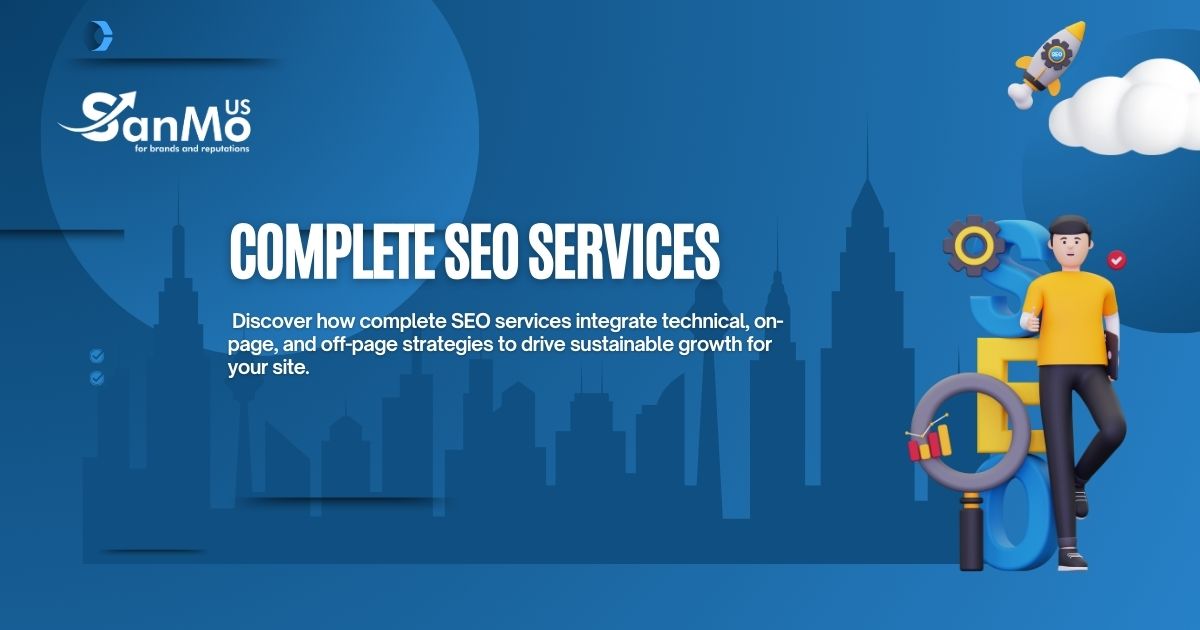Navigating the world of websites can feel overwhelming, especially when terms like “domain” and “hosting” get thrown around. If you’re setting up a website for the first time, understanding these two foundational concepts is a must. They are the heart of any successful website, and making the right choices could determine the performance, accessibility, and credibility of your online presence.
This blog will walk you through the essentials of domain and hosting services, their differences, and how to choose the right ones for your needs. By the end of this guide, you’ll be equipped to launch your website confidently.
Understanding Domains and Hosting Services
Before you can set up a website, it’s crucial to understand what domains and hosting services are and how they work together to keep your website running.
What Is a Domain?
Think of a domain as the address of your website. It’s what people type into their browsers to reach your site, like www.example.com. Without a domain, visitors would have to type in a string of complex numbers (an IP address) to find your website. Domains make it easier for users to access your site while creating a branded, professional appearance. Learn more about Domains and Hosting Services.
Domains are unique and must be registered via domain registrars, such as GoDaddy, Namecheap, or Google Domains. They typically follow a structure like this:
Example:
- [www.] (Optional subdomain)
- example (Your chosen unique name)
- .com (Top-Level Domain or TLD)
Top-Level Domains (TLDs) Overview
TLDs are the extensions at the end of a website address, such as:
- .com – Commercial and the most popular choice
- .org – Commonly used by organizations or nonprofits
- .edu – Educational institutions
- .net – Technology-centric businesses or networks
- .gov – Government entities
Pro Tip: Consider choosing a domain name that is easy to remember, reflects your brand, and aligns with your target audience.
What Is Hosting?
While the domain gets people to your site, hosting is where your website lives. Hosting services provide the servers, storage, and bandwidth needed to display your website’s content. Without hosting, your domain would lead to an empty space.
Hosting services allow you to store essential website files like HTML, CSS, images, and videos. When users visit your website, the hosting server retrieves this information and delivers it to their browser.
Key Types of Hosting
- Shared Hosting
Perfect for beginners, shared hosting is affordable because your site shares server space with other websites. While cost-effective, it may impact performance during high traffic surges.
- VPS Hosting (Virtual Private Server)
VPS hosting provides you with a dedicated portion of a server, striking a balance between affordability and performance. It’s ideal for websites with growing traffic.
- Dedicated Hosting
Here, you get your own server dedicated solely to your website. This ensures top-tier performance and customization options, but it comes at a premium cost.
- Cloud Hosting
Cloud hosting uses multiple servers connected via a network. It offers scalability and reliability, making it suitable for businesses with unpredictable traffic spikes.
- Managed Hosting
If you’d rather leave the nitty-gritty tech details to experts, managed hosting could be your go-to. With this option, the hosting provider handles maintenance, updates, and backups for you.
Pro Tip: When choosing a hosting service, factor in storage space, uptime reliability, speed, and customer support.
The Difference Between Domain and Hosting
While domains and hosting work together to make websites accessible, they’re not the same thing. Here’s how they differ:
- A domain is your online address: It directs users to your website.
- Hosting supplies storage and infrastructure: It provides the foundation to display your website’s content.
Think of it this way. If your website is your home, the domain is the address, and hosting is the piece of land where the house is built.
You can purchase domains and hosting from the same provider or buy them separately and integrate them later. Buying them together, however, often simplifies setup and management.
How to Choose the Right Domain and Hosting Services
Navigating the sea of available options can feel overwhelming. Here’s a step-by-step guide to help you make informed choices:
Step 1. Determine Your Needs
Ask yourself the following questions:
- Will your website feature a blog, portfolio, e-commerce store, or something else?
- How much traffic are you expecting?
- Do you need extra storage for media-heavy content?
Step 2. Choose a Domain Name
Tips for selecting a great domain:
- Keep it short and memorable (10–15 characters is ideal).
- Avoid hyphens or numbers that can confuse visitors.
- Use keywords relevant to your business or niche.
- Check for availability on your desired TLD (e.g., .com, .co).
Step 3. Research Hosting Providers
No two hosting providers are alike. When shopping around, consider:
- Performance: Look for providers with excellent uptime guarantees (99.9% or higher).
- Scalability: Will the hosting support your growth as traffic increases?
- Support: Reputable providers offer 24/7 customer support via phone, chat, or email.
- Integration: Check if hosting plans include built-in tools like WordPress or e-commerce software.
- Security: Opt for platforms offering SSL certificates, backups, and malware protection.
Popular hosting services include Bluehost, Site Ground, and HostGator.
Step 4. Look for Bundles and Deals
Many providers offer domain-hosting bundles, saving you money and streamlining the process.
Step 5. Complete Setup
Most providers guide you through setup, allowing you to connect your domain to your hosting service quickly. Tools like cPanel make it easier to manage files, databases, and email accounts.
Why a Reliable Domain and Hosting Service Matters
Investing in reliable domain and hosting services is essential to building trust, boosting site performance, and ensuring seamless user experiences. Here’s why these services are vital:
- Improved SEO: High-performing hosting ensures faster loading times, a critical factor for search engine rankings.
- Professionalism: A branded domain name increases credibility and trust among users.
- Readiness for Growth: Scalable hosting solutions grow with your website, ensuring continued success.
Pro Tip: A good hosting provider will prevent site downtime, protecting your site from lost revenue or visitors.
Launch Your Website with Confidence
Selecting the right domain and hosting services is the foundation of a successful online presence. By understanding their roles and differences, you can make informed decisions to elevate your brand or business. Whether you’re a blogger, entrepreneur, or small business owner, investing in quality services will pay dividends in performance, user experience, and long-term growth.
If you’re ready to kickstart your online presence, start researching reputable domain registrars and hosting providers today. The sooner you begin, the closer you’ll be to bringing your vision to life.








